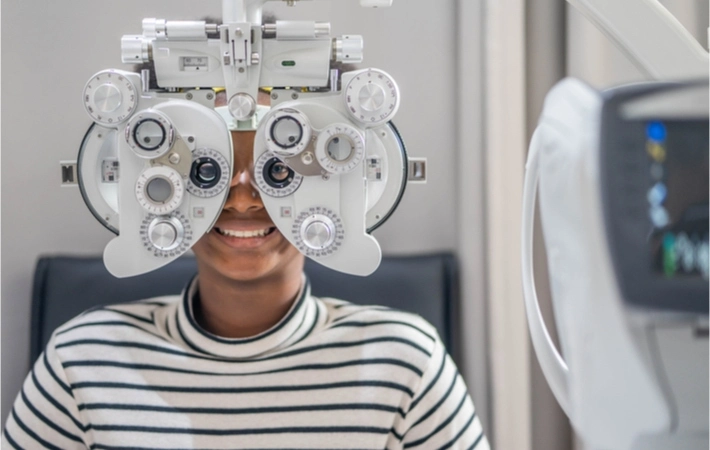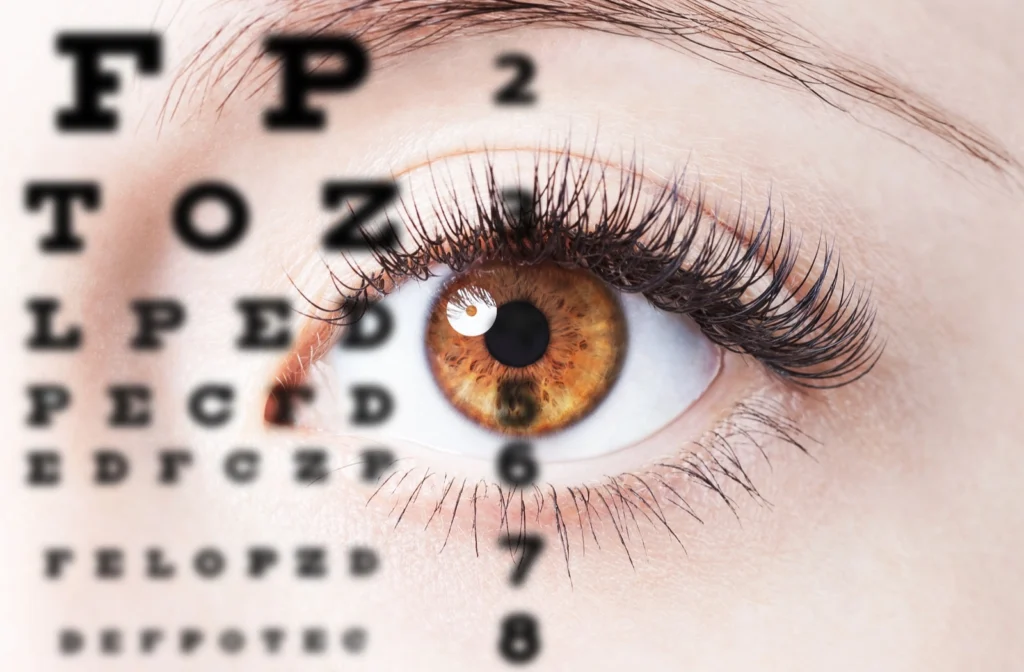How Long Does an Eye Exam Take?
Getting regular eye exams is the best way to preserve and improve your eye health. Eye exams help us see clearly, prevent damage and disease, and provide expert treatment and advice regarding our eyes.
It can be easy to forget about getting eye check-ups, but scheduling and attending comprehensive eye exams is an important part of looking after your wellbeing.
Luckily, eye exams are generally quick to complete and provide enough insight to keep your eyes healthy.
What Is a Comprehensive Eye Exam?
Comprehensive eye exams are performed by an optometrist and play an important role in preventative health care for your eyes. These eye exams are designed to evaluate your vision and eye health, as well as provide any necessary prescriptions or treatment plans.
What Tests are Involved?
Along with a review of your medical and visual history, eye exams can involve many different tests. Your optometrist will discuss your vision needs for your day-to-day life to better understand how to provide any treatment.
The most common tests include:
- Visual acuity test to measure your near & far vision (using an eye chart)
- Binocular vision test to assess eye coordination, depth perception, & movement
- Colour vision evaluation to see if you have any degree of colour blindness
- Eye health assessment for the inside & outside of the eye
- Neurological assessment to review pupil reactions, ocular motility, & peripheral vision
- Glaucoma screening by testing eye pressure
During your comprehensive eye exam, your optometrist will be able to diagnose any refractive errors (focusing power of the eye). This is done with both objective testing and subjective techniques where you’ll provide responses to certain questions.
You may require additional testing if the results of your eye exam are inconclusive or bring up any points of interest. Extra testing can provide a more in-depth understanding of your eye health. Some additional tests include retinal photography, optic nerve or macular scans, ultrasounds, and contrast sensitivity.
The results of your eye exam will help determine a course of treatment for your eyes if it’s necessary. This includes a prescription for glasses and contact lenses, eye exercises, surgery, and more.
How Long Does it Take?
An average eye exam can take between 20 and 60 minutes. The length of time for your exam depends on how busy the office is, as well as the extent of your exam. If you’re going in for a check-up, you’ll probably spend less time with your optometrist than you would if you went in for a specific concern.

How Often Should I Get One?
Depending on your age, the frequency of your comprehensive eye exams will vary. The general rule for eye exams is:
- Under 20 = Annually
- Age 20 – 39 = Every 2 – 3 years
- Age 40 – 64 = Every 2 years
- Age 65+ = Annually
If you wear glasses or contact lenses, have a history of eye disease in your family, or have other medical conditions, such as diabetes, your optometrist may recommend you come in more regularly.
What Is an Optometrist Looking For?
A comprehensive eye examination can reveal many things about your eyes. Your optometrist will likely be looking for any signs of refractive errors like myopia, hyperopia, astigmatisms, or presbyopia.
Myopia, also called “nearsightedness”, is a refractive error that occurs when the eyeball is too long or the cornea is too curved, causing blurred distance vision. Objects up close will appear in focus, while objects far away will appear blurry. Myopia is a very common condition and can be easily corrected with the right prescription.
Hyperopia, also called “farsightedness”, is a refractive error that occurs when the eyeball is too short or the cornea is too steep, causing blurred near vision. Objects far away will appear in focus, while objects in a close range will appear blurry. Hyperopia is a relatively common condition and can also be corrected with the right prescription.
An astigmatism occurs when there’s an imperfection in the curvature of the eye, usually when the cornea or the lens have mismatched curves. Astigmatisms can cause blurred vision at any range, but can be easily corrected with the right prescription.
Presbyopia is a refractive error that can occur with age. The lens of your eye begins to lose some elasticity and flexibility, causing blurry near vision. Symptoms typically begin to show around our mid-40s to early 60s, but can be managed with many treatments, such as reading glasses.
During your eye exam, your optometrist will also look for any signs of eye conditions or diseases. Some examples include:
- Age-related macular degeneration
- Cataracts or glaucoma
- Keratoconus
- Eye infection
- Optic nerve & retina health
Book Your Next Eye Exam Today
Are you overdue for an eye exam? Contact our team today to book your appointment with Toronto optometrist at our location. We’ll be happy to help you.



